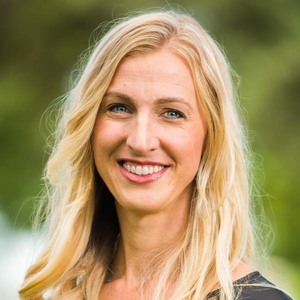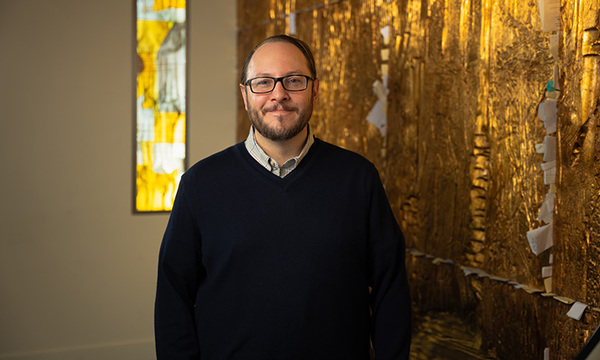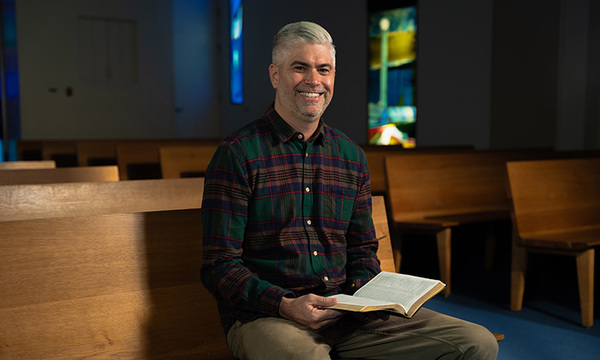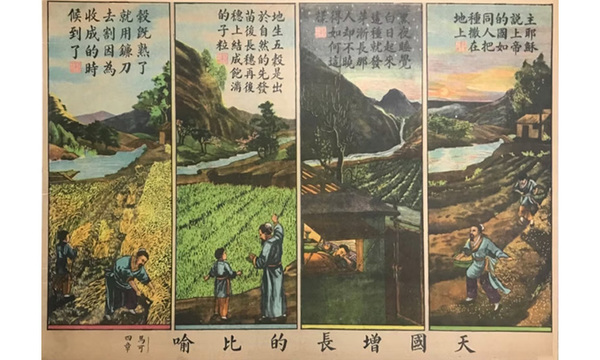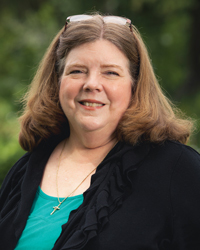
Betsy Barber is a professor and associate director of Talbot School of Theology’s Institute for Spiritual Formation. She is a licensed clinical psychologist with a practice that specializes in the soul care and mental health of Christian workers. She teaches courses in spiritual formation, soul care, psychology and retreat, has a background and training in spiritual formation and supervises students in spiritual direction and mentoring.
Q: Betsy, you have been ministering at Biola in various capacities for 23 years, but your ministry extends further back. You and your husband served with Wycliffe Bible Translators since 1980. Can you tell us a little about your ministry?
My husband Steve and I both finished master’s degrees in linguistics and joined Wycliffe in 1980. We’re both still members although right now I am permanently seconded to Talbot. Steve still teaches full time in SIL here in the Cook School of Intercultural Studies, training new Bible translators.
We started out in the Sub-Arctic working with the Dene tribe for six years. Their language, Athabaskan, is affiliated with Navajo. We worked with a little pocket of Christians who didn’t have Scripture in their own language. This season of life with the Dene was so good for me. We were well trained and good students, but these people didn’t care about all of that — they wanted to pray for healing, cast out demons and skin moose hides. It was so formative. It cracked open my arrogant, complacent Western heart, showed me who I was and how much I needed Jesus.
During that time, Wycliffe identified my strength in member care so they wanted me to get a degree in counseling. I also came to know that my vocare was to listen and to pray.
Q: That’s an inspiring story! Were there certain Scriptures that especially encouraged you in this season?
One verse that really took root in my heart was 1 Corinthians 6:17: “He who is joined with the Lord becomes one with him in spirit.” Also, John 14 and Galatians 4:4. My prayer life became tremendously important to me. It was a very dark, violent place. The stuff I was good at didn’t matter there. So these Scripture passages became so immediately important and specific.
Q: You followed the leading to get a degree in counseling and earned your Psy.D. from Biola’s Rosemead School of Psychology. Soon after that you began teaching. Can you tell us about how God was working in your life at that time?
When I began teaching in Rosemead in 1996, a group of professors began talking about what a program in spiritual formation might look like that integrated psychology, philosophy and theology. That group of professors began praying together and dreaming of curricula that would address the life of the minister. For five years, we were praying together. We started every meeting by reading John 15, meditating on it and praying. We found a home for ISF in Talbot and launched a small program thinking we might get 8–12 students. We ended up having 15–20, and it has just grown from there. We now have 141 students in three master’s programs and the certificate program.
We continue to begin each faculty meeting praying through and meditating on John 15 and find that the work goes so much more smoothly because we have centered our hearts in the word and prayer. Our guiding question has always been: What has God done and what is he doing? This is the question behind soul care and spiritual direction. God is here and he is doing something.
Q: With such a fruitful ministry, can you share what types of activities you enjoy doing when not teaching, ministering or researching?
We are avid campers. We don’t do as much backpacking and mountain biking as we used to, but still go tent camping all the time. I don’t watch movies and don’t have a taste for TV, but I love to read. I enjoy science fiction and fantasy. Music is important to me. I play the piano and the guitar, I sing, and enjoy just listening. We also have seven grandchildren who take a lot of delightful and relational energy.
 Biola University
Biola University